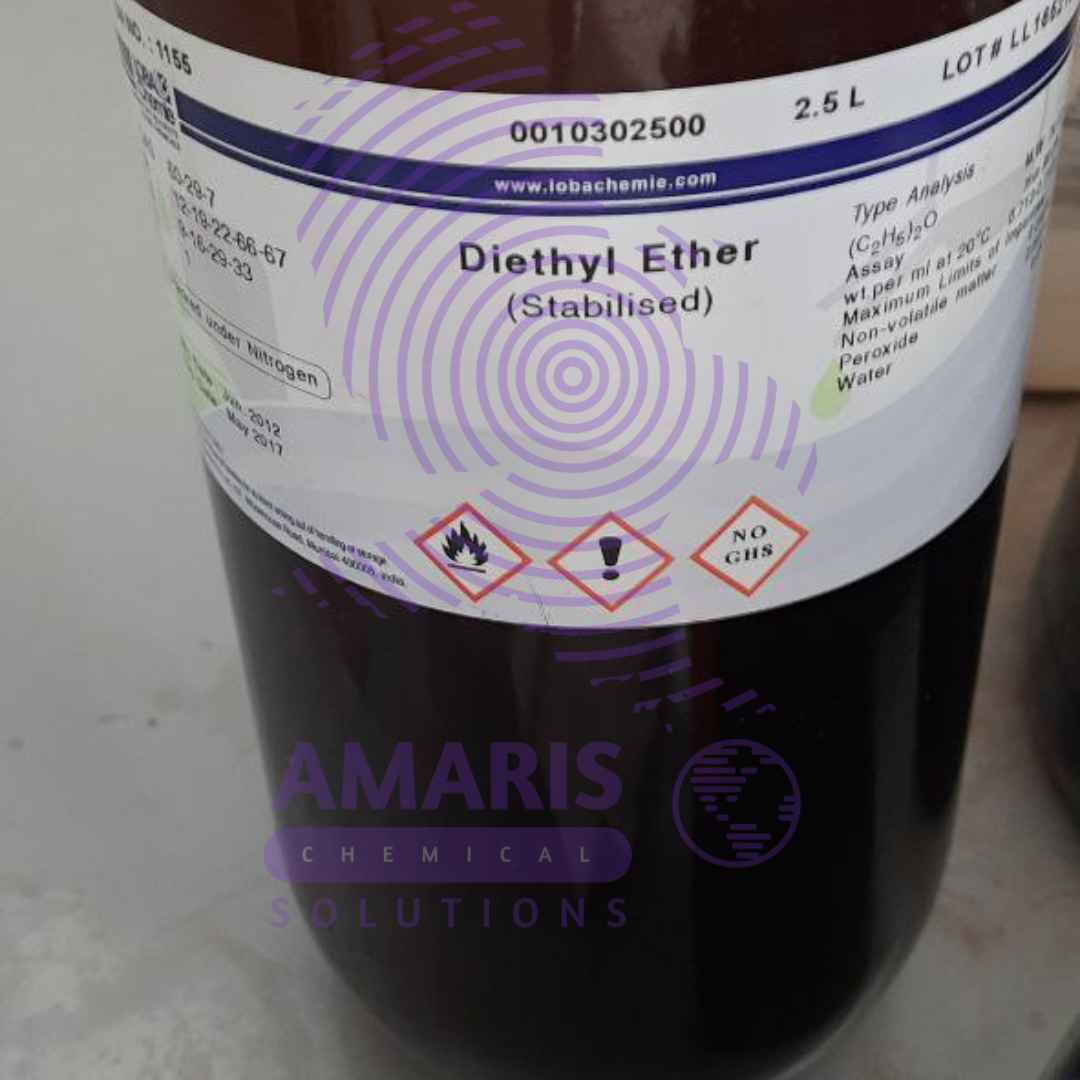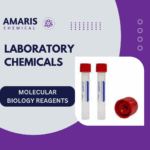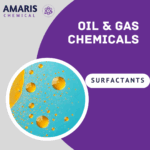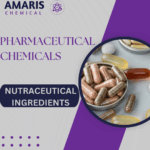Diethyl Ether Explained: A Comprehensive Guide to Its Uses and Benefits

Diethyl ether, often referred to simply as ether, is one of the most widely known organic compounds due to its extensive use in various industries. Its chemical formula is C4H10O, and it has a range of physical and chemical properties that make it highly valuable. Here’s an in-depth look at diethyl ether, its uses, and its benefits.
1. Overview and Chemical Structure:
- Diethyl ether is a volatile, flammable liquid with a distinct sweet odor. Structurally, it consists of two ethyl groups (C2H5) attached to an oxygen atom, making it an ether (R-O-R’) compound.
- Its molecular weight is 74.12 g/mol, and it has a low boiling point of 34.6°C (94.3°F), making it highly evaporative.
2. Physical Properties:
- Volatility: Diethyl ether is highly volatile and evaporates quickly at room temperature. This property is important in various applications, particularly in organic extractions.
- Solubility: It is slightly soluble in water but highly soluble in other organic solvents, which enhances its utility in chemical processes.
- Flammability: Ether is extremely flammable, requiring careful handling and storage.
3. Uses of Diethyl Ether:
a. Laboratory Solvent:
- Organic Solvent: Diethyl ether is a popular choice as a solvent in chemical laboratories due to its ability to dissolve a wide variety of organic compounds. It’s especially useful in extraction processes where organic substances need to be separated from aqueous solutions.
- Grignard Reactions: Ether is indispensable in Grignard reagent formation, where it stabilizes the reagent, allowing crucial organic transformations in synthetic chemistry.
b. Medical Uses:
- Historical Anesthetic: Ether was one of the first general anesthetics used in surgeries during the 19th and early 20th centuries. Its ability to induce unconsciousness with minimal side effects revolutionized surgery at the time. However, due to its flammability and the availability of safer alternatives, its use has largely been discontinued.
c. Automotive and Industry:
- Starting Fluid: Diethyl ether is a key ingredient in starting fluids for diesel and gasoline engines, particularly in cold weather. Its volatility and low ignition temperature make it ideal for helping engines start in difficult conditions.
d. Recreational and Historical Use:
- In the past, diethyl ether has also been used as a recreational drug due to its psychoactive effects, but this use is extremely dangerous and illegal in most places due to its flammability and potential health risks.
4. Benefits of Diethyl Ether:
a. Versatility as a Solvent:
- Diethyl ether’s ability to dissolve a wide range of organic compounds makes it one of the most versatile solvents in organic chemistry. It is highly effective in extractions and reaction mixtures, offering a quick evaporation rate that makes it ideal for recovery of the solute.
b. Facilitates Organic Reactions:
- For reactions like the Grignard reaction, ether provides an essential environment that supports the formation of organometallic compounds. Without diethyl ether, many key organic reactions would be inefficient or impossible.
c. Cold Weather Engine Starting:
- Its utility as a starting fluid makes diethyl ether invaluable in industries where machinery operates in cold environments. Ether-based starting fluids enable efficient engine ignition, saving time and preventing engine wear caused by cold starts.
5. Safety Considerations:
- Highly Flammable: Ether’s high volatility makes it prone to ignition, even at room temperature. Strict storage protocols are needed to avoid exposure to open flames or sparks.
- Peroxide Formation: Over time, diethyl ether can form explosive peroxides when exposed to air and light. It is critical to handle it in tightly sealed containers and check regularly for peroxides.
- Health Risks: Prolonged inhalation of ether vapors can lead to dizziness, respiratory issues, and in extreme cases, unconsciousness. Proper ventilation and protective equipment are necessary when handling ether in large quantities.
Conclusion:
Diethyl ether is a highly valuable compound, with extensive applications in chemistry, medicine, and industry. Its role as a solvent, its ability to facilitate key chemical reactions, and its historical importance in anesthetics demonstrate its versatility. However, careful handling and storage are essential due to its flammability and potential to form dangerous peroxides. Despite the decline of some of its historical uses, ether remains a cornerstone of laboratory and industrial processes.


 Emollients
Emollients Humectants
Humectants UV Filters
UV Filters Surfactants (cosmetic)
Surfactants (cosmetic) Preservatives (cosmetic)
Preservatives (cosmetic) Fragrances and Essential Oils
Fragrances and Essential Oils Antioxidants (cosmetics)
Antioxidants (cosmetics)
 Solvents (lab)
Solvents (lab) Chromatography Chemicals
Chromatography Chemicals Microbiology and Cell Culture Reagents
Microbiology and Cell Culture Reagents Biochemical Reagents
Biochemical Reagents Inorganic and Organic Standards
Inorganic and Organic Standards Spectroscopy Reagents
Spectroscopy Reagents Molecular Biology Reagents
Molecular Biology Reagents
 Precious Metal Extraction Agents
Precious Metal Extraction Agents
 Plasticizers
Plasticizers Polymerization Initiators
Polymerization Initiators Stabilizers
Stabilizers Monomers
Monomers Fillers and Reinforcements
Fillers and Reinforcements Antioxidants (plastics)
Antioxidants (plastics) Colorants (plastic pigments,Dyes)
Colorants (plastic pigments,Dyes)
 Fertilizers
Fertilizers Plant Growth Regulators
Plant Growth Regulators Soil Conditioners
Soil Conditioners Animal Feed Additives
Animal Feed Additives Biostimulants
Biostimulants
 Dough Conditioners
Dough Conditioners Flour Treatments
Flour Treatments Fat Replacers
Fat Replacers Preservatives (baking)
Preservatives (baking)
 Surfactants (cleaning)
Surfactants (cleaning) Builders
Builders Bleaching Agents
Bleaching Agents Enzymes
Enzymes Solvents (cleaning)
Solvents (cleaning) Fragrances
Fragrances Disinfectant
Disinfectant Metal cleaning
Metal cleaning
 Binders/Resins
Binders/Resins Pigments
Pigments Solvents (paint)
Solvents (paint) Additives
Additives Driers
Driers Anti-Corrosion Agents
Anti-Corrosion Agents Specialty Coatings
Specialty Coatings Functional Coatings
Functional Coatings Application-Specific Coatings
Application-Specific Coatings
 Sealants and Adhesives
Sealants and Adhesives
 Biodegradable Surfactants
Biodegradable Surfactants Bio-based Solvents
Bio-based Solvents Renewable Polymers
Renewable Polymers Carbon Capture Chemicals
Carbon Capture Chemicals Wastewater Treatment Chemicals
Wastewater Treatment Chemicals
 Preservatives (food)
Preservatives (food) Flavor Enhancers
Flavor Enhancers Acidulants
Acidulants Sweeteners
Sweeteners Emulsifiers
Emulsifiers Antioxidants (food)
Antioxidants (food) Colorants (food)
Colorants (food) Nutrient Supplements
Nutrient Supplements Nutraceutical Ingredients
Nutraceutical Ingredients
 Fresh Herbs
Fresh Herbs Whole Spices
Whole Spices Ground Spices
Ground Spices Spice Blends
Spice Blends
 Surfactants(oil)
Surfactants(oil)
 Antibiotics
Antibiotics Active Pharmaceutical Ingredients
Active Pharmaceutical Ingredients Excipients
Excipients Vaccine Adjuvants
Vaccine Adjuvants Nutraceutical Ingredients
Nutraceutical Ingredients Solvents (pharmaceutical)
Solvents (pharmaceutical)
 Automotive chemicals
Automotive chemicals Pyrotechnic Chemicals
Pyrotechnic Chemicals


 Vulcanizing Agents
Vulcanizing Agents Accelerators & Retarders
Accelerators & Retarders Antidegradants
Antidegradants Reinforcing Agents
Reinforcing Agents Plasticizers & Softeners
Plasticizers & Softeners Fillers & Extenders
Fillers & Extenders Blowing Agents
Blowing Agents Adhesion Promoters
Adhesion Promoters












